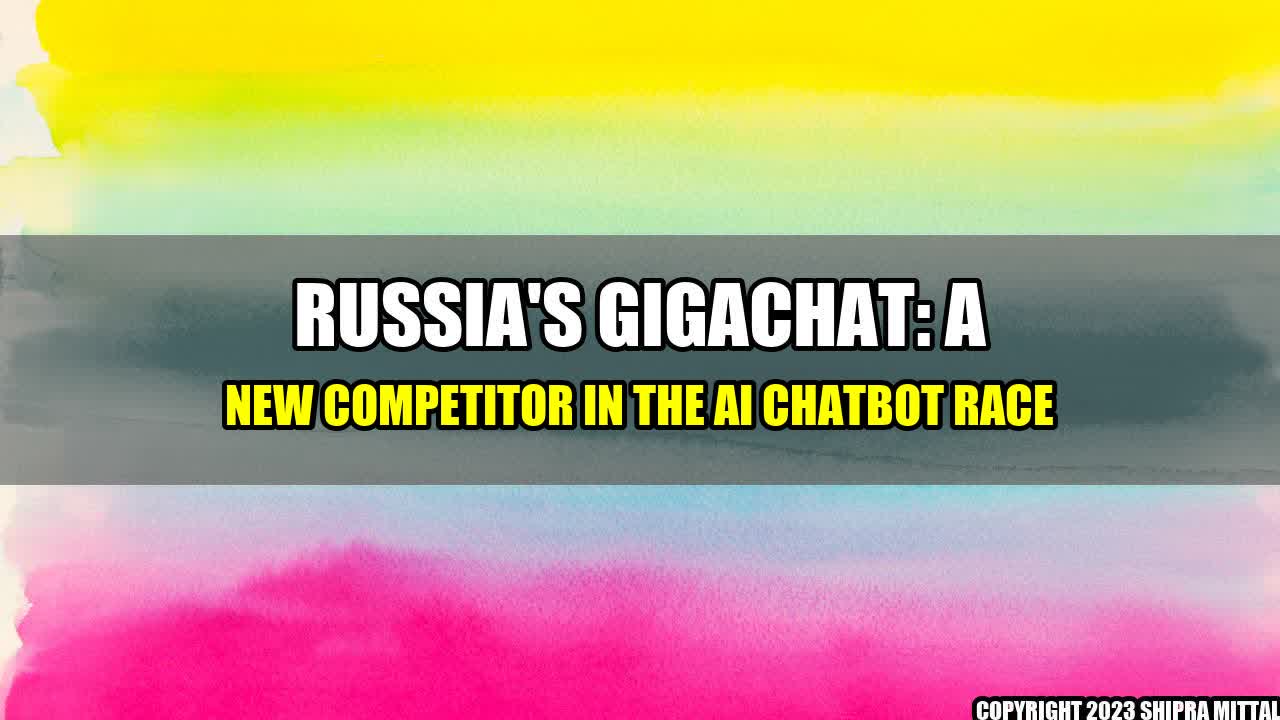The story of GigaChat
In the race to build the best AI chatbot, Russia has introduced GigaChat, a new platform designed to compete with OpenAI's ChatGPT. GigaChat is being developed by a team of Russian researchers and engineers, who claim that their technology can outperform ChatGPT in several areas.
GigaChat's creators say that their platform is more versatile, more user-friendly, and can handle more complex conversations than ChatGPT. They also claim that GigaChat can learn from a wider range of sources than ChatGPT, including blogs, social media, and scientific journals.
While GigaChat is still in the early stages of development, its creators are optimistic about its potential. They believe that GigaChat could revolutionize the way we use chatbots, and could be used in a wide range of industries, from healthcare to finance to customer service.
Real-life examples of GigaChat in action
To see how GigaChat operates in the real world, we can look at two examples of companies that have used the technology.
- Moscow Railways: Moscow Railways has integrated GigaChat into their customer service system. By using GigaChat, Moscow Railways has been able to provide customers with more personalized and efficient service. Customers can now ask questions about train schedules, ticket prices, and other services, and GigaChat will provide them with instant answers.
- Moscow City Government: The Moscow City Government has also adopted GigaChat to improve their communication with residents. By using GigaChat, the city government has been able to handle a wider range of inquiries from residents, including questions about public services, news updates, and emergency response.
Critical comments on GigaChat
While GigaChat has received praise for its versatility and user-friendliness, critics have raised concerns about the potential impact of AI chatbots on society. Some have argued that chatbots could lead to job losses in industries that rely on human customer service representatives, while others have warned about the potential for chatbots to spread misinformation or fake news.
Despite these concerns, the development of AI chatbots shows no signs of slowing down. As GigaChat and ChatGPT compete for dominance in the chatbot market, it will be interesting to see which technology prevails.
- Job losses: While AI chatbots have the potential to improve efficiency and reduce costs for businesses, some worry that they could lead to job losses in industries where human customer service representatives are currently employed. It remains to be seen how this issue will be addressed.
- Misinformation: There is also concern about the potential for chatbots to spread misinformation or fake news. As AI chatbots become more sophisticated, it will be important to develop safeguards to prevent this from happening.
- Human interaction: While AI chatbots can handle simple questions and tasks, they cannot replace human interaction. In industries where personal relationships are key, such as healthcare or education, AI chatbots may not be able to provide the same level of service as human professionals.

Akash Mittal Tech Article
Share on Twitter Share on LinkedIn